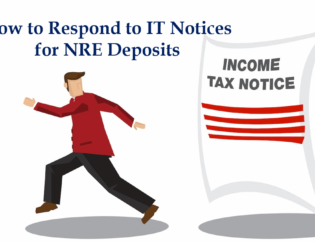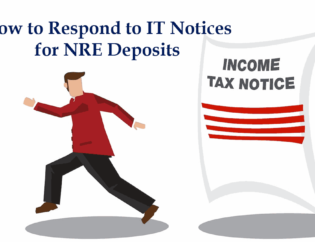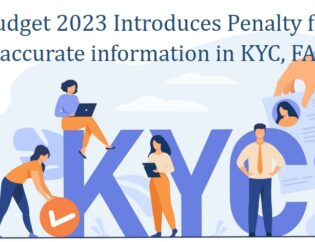FATCA Basics:
The Foreign Account Tax Compliance Act (FATCA), enacted in 2010, is an important development in U.S. efforts to combat tax evasion by U.S. persons holding investments in offshore (out of USA) accounts.
Under FATCA,
1. U.S. taxpayers holding financial assets outside the United States must report those assets to the IRS. US tax payers include anyone who file 1040, including , H1/L1 visa holders in USA and US citizens and green card holders, whether residing in USA or not.
2. Foreign financial institutions (FFI) will report certain information about financial accounts held by U.S. taxpayers directly to the IRS. FFI includes any institution that accepts deposits, holds financial assets for others or engaged in investing or trading in securities. In Indian context, FFI will include ALL Indian banks, NBFCs, insurance companies, mutual funds, stock brokers, etc.
Reporting by US taxpayer:
U.S. taxpayers with foreign financial assets that exceed $50,000 at year end or $75,000 at any time during the year ($100,000 and $150,000 respectively for MFJ) must report those assets to the IRS in Form 8938 starting 2012 i.e. calendar year 2011.
Timeline for FFI:
- Participating FFI to enter an agreement with the IRS by June 30, 2013
- Perform Due diligence for identifying U.S. accounts in 2013
- Report certain information about US accounts from 2014
- Withhold on U.S. source dividend & interest to non-participating FFIs from Jan. 1, 2014
- Withhold on all withholdable payments (including on gross proceeds) from Jan. 1, 2015
Due Diligence for identifying US accounts (PERFORMED IN 2013):
(1) Due Diligence for New Accounts:
A participating FFI will be required to put in place account opening procedures, including review of information provided for identification and of documentation collected under Anti Money Laundering (AML) / Know Your Customer (KYC) rules to identify U.S. accounts.
(2) Due Diligence for identifying Pre-existing Accounts:
(a) Account balance or value upto $50,000 – Exempt unless FFI elects otherwise
(b) Account balance or value between $50,000 and $1,000,000 – subject to only electronically searchable data that indicate US status of an account holder such as:
(i) Identification of account holder as a US person
(ii) US place of birth
(iii) US address
(iv) US telephone number
(v) Transfer of funds to an account maintained in the US
(vi) POA or signatory authority granted to a person with a U.S. address
(vii) US “in-care-of” or “hold mail” address
(c) Account balance or value more than $1million – review of electronic and non-electronic files e.g. inquiring account relationship manager.
My View:
FATCA came in 2010 with well thought out plan and support of major countries with phased implementation starting in 2013. FATCA is making progress slowly and steadily. While there may be delay, it will be implemented.
My expectation is that major banks in India (SBI, ICICI, HDFC, etc.) will participate in FATCA. Other banks may follow if they want to grow with US funds.
An FFI may decide not to be a participating FFI and be ready for withholding of 30%. An FFI may also decide to be a ‘deemed compliant’ FFI and return all funds and not solicit business from US residents. I noticed a filter on the website of JM Financial Services, which I expect will be a "deemed compliant" FFI.
If your bank will be a participating FFI, it will have Due Diligence process to identify pre-existing accounts in 2013 and will start reporting to IRS in 2014. Reporting will be of 2013 calendar year i.e. year starting from January 1, 2013.
As penalty could be severe, it is advisable to plan NOW, consult an advisor and comply with IRS requirements as only 3 months remain before start of 2013 calendar year.
Please click here to read my latest blog (Feb 2014) on “Comprehensive Analysis of FATCA (Foreign Account Tax Compliance Act) of USA for US based NRIs” that analyze the history and background, FATCA update, Update on US-India FATCA agreement, NRI mindset, Effect of India signing FATCA, etc.









Hello Mr. Jigar,
Do you help Green Card Holders(US Tax payers) who have accounts(NRE/NRO) in India but confused about this FATCA law and FBAR requirements as part of filing Tax returns in US? Are you based out of US or India?
Regards,
Sudesh
We do provide consulting and support compliance with FATCA and FBAR. We are based in Ahmedabad, India. Thanks.
Sir,
Is it possible to talk to you on seeking your advise on the filing of my son’s IT returns who is in USA especially on mutual funds ,etc.Can I get your telephone number please ?.
Thanks.
Anbalagan.V
Contact details are available in “Contact Us” page of the blog. Thanks.
Dear Sir,
Whether Non Banking Housing Finance Cos. granting loans to NRIs for purchasing residential property, etc., in India are covered under FATCA ?
It is a loan and not an asset or investment account. Also, loan is utilized for buying real estate property. Currently, investment in real estate is not covered under FATCA. FATCA is only for foreign FINANCIAL accounts. Thanks.
i m NRI leacing in USA. Recently i have bought a flat in India worth rupees 78 lakhs. for this purpose i have taken loan of 40 lakhs & rest amount i have pain in cash. also on regular basis i send money to my indian state bank NRI account. Will i be impacted by FATCA? do i need to report the real estate property in my tax filling. Do i need to pay any taxes under FATCA
Currently, only foreign financial accounts are included in FATCA. Your real estate investments are not included. However, you would need to report the bank account where you transfer the funds. Thanks.
i am a US citizen. i want to close my NRE account in india and deposit all my money in my brothers saving account in india who is an indian citizen. what is the maximum amount i can deposit so my brother do not have to pay any taxes in india.
There is no limit as per Indian income tax for gift received from NRI brother. However, your brother would need to mention of gift received during the year and I would suggest to have a gift letter for the same. Thanks.
I have a client who shifted to USA 7-8 years back. Before he had shifted to USA, he had a lot of FDRs in his and his family members names which he subsequently got liquidated and re-invested into mutual funds in India. All the folios in the mutual funds were opened on or before 30th June 2014 and none of these folio on a individual basis crosses the limit of 50,000 $ . Yet, if we consider the aggregate value of his mutual funds holdings across all the fund houses, the value certainly crosses the limits of 50,000 $ as of 30th June 2014. These investments are also in the capacity of ‘ Resident Indian’ and not as an NRI. Again, the client has never transferred even a single $ from USA to India . Whatever investments are there in his mutual funds, are also from his old accumulated savings that were with him , before he left for USA. The client has been regularly reporting his Indian income i.e. Income as per his Indian ITR , in his USA tax return, though he was not aware of the fact he also had to report details of his Indian held assets. So, the client at the moment has been making disclosures about all his Indian Income in his USA return but left out the assets disclosure inadvertently. What is the remedy for this ? One concern is , if we declare now the Indian assets, will it lead any sort of penalty etc ?
I suggest your client to seek guidance from his CPA who helped him in disclosure. Thanks.
WONDERFUL blog. A great eye opener for me.
I was an NRI in Nigeria till October 2013 and came back to India in October 2013. I had NRI rupee FDs totalling rs.50 lacs in cumulative deposits. I was trying vigorously to go out of India but nothing clicked. As I was unsure, I continued with my NRI deposits . Got a job in India in July 2014. For yr 2013-14, I was an NRI. For 2014-15, I filed my tax returns as per Indian taxes. I continued with my NRI deposits without converting to resident a/c, purely out of ignorance. The customer profile in bank has foreign domicile.
1. Will I get CRS notice?
2. How to deal, as I am a resident from October 2013??
3. Can I now convert my NRI FDs into resident account with effect from this month?
4. What is the Indian tax effect for 2014-15, where the FDs interest not shown, although I filed Indian IT return ?
5. Shall I show only a from this year 2015-16 jan onwards after converting the FDs into ordinary resident account now?
Please guide me .
1. Yes
2. I suggest you inform your bank that you are a resident now and have them deduct tax as required. Income tax department may issue notice is they have a suspicion that you have not paid tax on the income. There are many avenues available for earning tax-free in India. If you need any help, let us know.
3. Your obligation is to inform the change of status to the bank and follow bank’s procedures. Please inform the bank of your correct residential status as soon as possible.
4. NRE FD interest is not taxable and resident FD is taxable. I suggest you contact your CA. Thanks.
I first came to US and become a green card holder in May 2015. Do I need to report all the income I earned before coming to US ( i.e. income earned before May 2015 ) in my IRS return for 2015 ?
First, please determine if you are a US resident or not based on your substantial presence test. If yes, you would need to comply with all the regulations related to US resident including FATCA (Form 8938), FBAR and including your worldwide income in your US tax return. Ofcourse, you won’t be taxed twice as you would be eligible for foreign tax credit for the tax you have paid outside USA. Thanks.
Hi,
I have a company in UAE (25% share) and I moved to US on L1A visa i-e I transferred myself from UAE company to US company. So legally, my UAE company owns 100% shares of my US company. I am self employed in my US company and draw monthly salary from it. I recently files my 1040 (income tax return) and I didnt mentioned anything about my partnership in UAE company.. I still have to file my business taxes (i-e filing taxes of my US company) with IRS. What do you recommend, what should I do at this stage? Please help!
Please contact your CPA and seek professional help. Thanks.